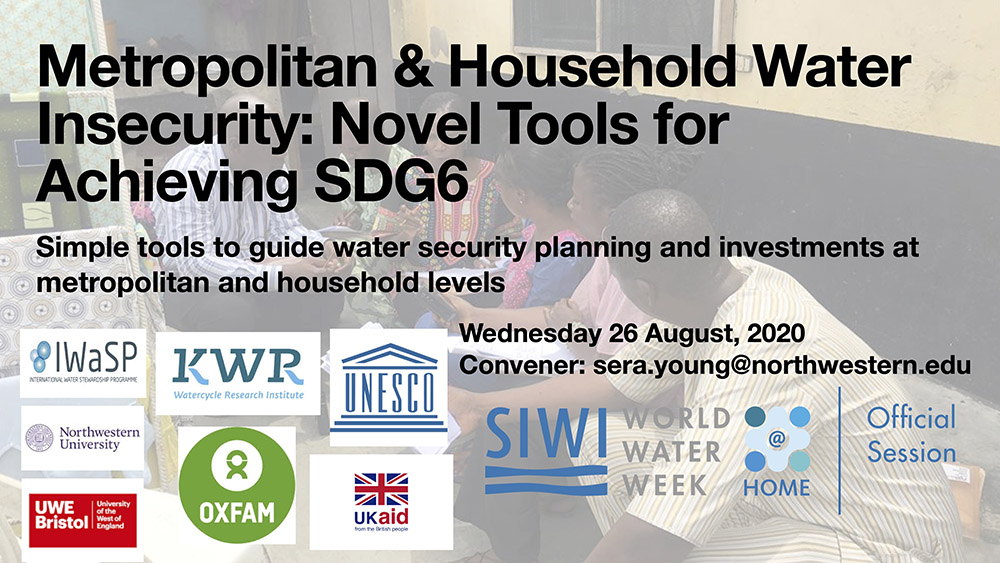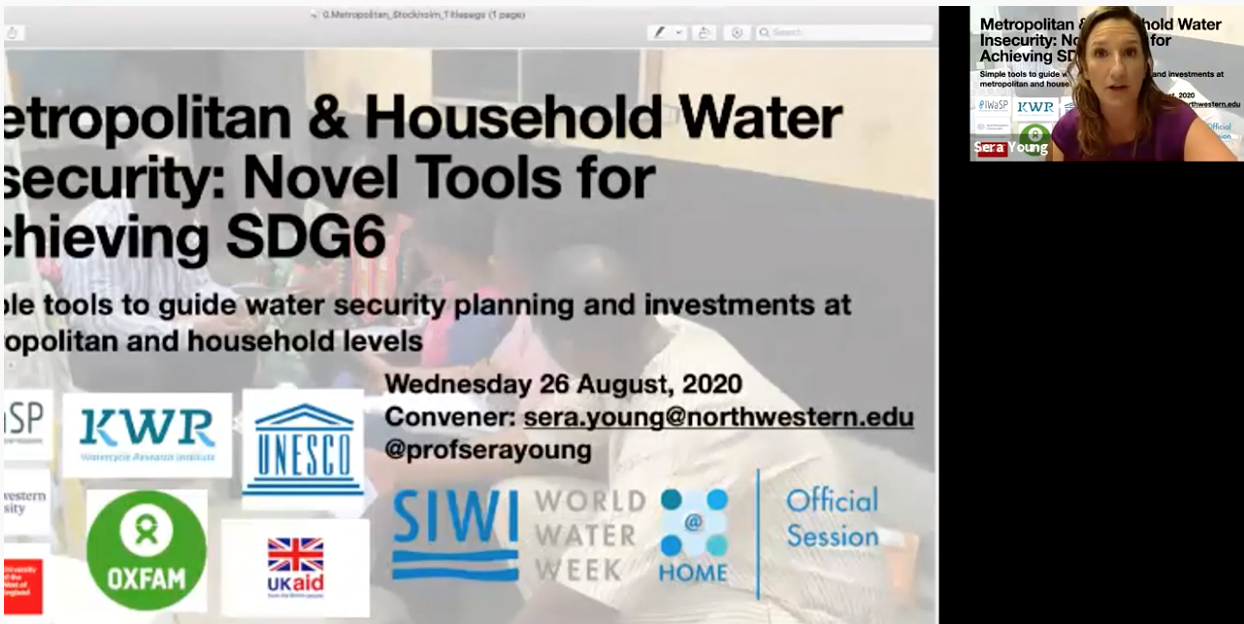Resources and Tools for Action on Metropolitan & Household Water Insecurity

SIWI’s 2020 World Water Week in Stockholm focuses on transforming global water challenges. In the August 26 session on “Metropolitan & Household Water Insecurity,” the panelists presented simple tools to guide water security planning and investments at metropolitan and household levels. They introduced two city-level instruments for water security assessment, as well as the first globally-validated household-level indicator. They concluded by discussing how these tools can be used to advance policy and programmatic priorities in a conversation moderated by Andy Roby of DFID.
Video
 Watch a video of the presentations.
Watch a video of the presentations.
Tools and Presentations
Scenario Planning Tool + Water Security Investment Model
If you are looking for information on tools for informed decision-making on planning and investment in water security in Greater Kampala Metropolitan Area, check out GIZ International Water Stewardship Programme (IWaSP)'s Scenario Planning Tool. To appreciate how stakeholders in Greater Kampala Metropolitan Area are prioritizing investment projects to address multiple water security threats check out their Water Security Investment Model. Slides from the presentation describing both these tools are here.
City Blueprint
If you are looking to assess integrated urban water management using a tool implemented in more than 120 cities in more than 50 countries, consider KWR Watercycle Research Institute’s City Blueprint:
- City Blueprint overview and tools
- City Blueprint presentation
- Relevant publications

Household Water Insecurity Experiences Scale (HWISE)
If you would like to assess human experiences with water insecurity, consider the Household Water Insecurity Experiences Scale:
- HWISE Scale overview
- HWISE Scale manual
- Other HWISE Scale publications
- HWISE presentation
- Presentation by the International Water Security Network at the University of Western England describing a visualizer to help automate the analysis of HWISE data
- Slides describing a case study of Oxfam’s implementation of HWISE in Zambia and the Democratic Republic of Congo. You can read the peer-reviewed paper on which it was based (email Sera Young for the full text) and find the governance questions here.
Sustainable Water and Sanitation Index
If you want to measure sustainable water and sanitation at the household-level, check out the Oxfam GB Sustainable Water and Sanitation Index. This is an example of "Oxfam’s Effectiveness Reviews."
UNESCO
These slides, presented by Alexandros Makariagakis, describe how UNESCO understands these tools to fit with their vision of metropolitan and household water security.